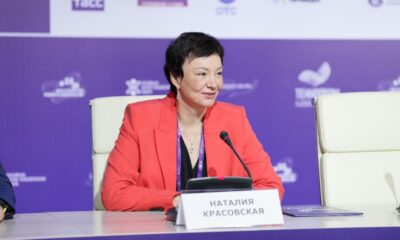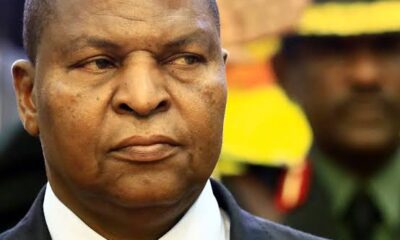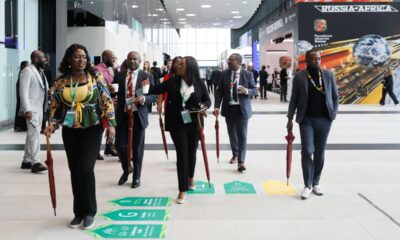National Issues
The Amalgamation Quagmire: The Blame And The Way Forward -By Augustine Musa Ibrahim
Marriage is a legal union between a husband and a wife. In line with the Jewish Marriage procedure, it is the third and final step, and takes place after one year of waiting period. This is to demonstrate the faithfulness of the pledge of purity especially on the side of the bride. If an unfaithful sexual relationship is found, the marriage will then be annulled. However, if the period demonstrates faithfulness and purity, then the husband goes to the bride’s home, and in a grand processional match, leads his wife back to his house.

Introduction
Viewing through the history angled-lens with a keen analysis of the antecedents happenings which hitherto destabilizes the country politically, morally, religiously and economically, and which if not given immediate attention will scuttle the supposedly ‘marriage’ of 1914 on which Nigeria was birthed, I am increasingly becoming convinced day after day that the amalgamated Nigeria was not truly married as had been projected by many writers but, near enough the betrothal step, when x-rayed critically from perspective of the normal Jewish Marriage procedure, whose authenticity was not fully elucidated and ratified by the entities involved. From various historical observations, both from pre and post-Colonial eras, the blessedness and sacredness of marriage was far from being lived out and/or experienced especially in our present time, where we have been hemmed in by bitter experiences and violent conflicts of various forms. There are enough reasons, following what is before us, to look into our foundation as a nation, to ascertain this political imbroglio and ceaseless national quagmire, so as to address our present misunderstanding, and proffer the long-lasting panacea for a better Nigeria.
A Background Analysis of the Problem With Reference to the Jewish Marriage Procedure
According to the Jewish marriage procedure, the Engagement stage is the first step and often done when the couples are children by their parent and/or through a professional match-maker, and often without the involvement of the couples or their seeing each other. This stage, in the Nigerian context, was when the British Colonial Masters first laid their anchor on our fatherland; annexed Lagos as a royal colony in 1861, followed by the Igbo and minorities of the Oil River areas, and later the Northern Protectorate. As a result, a Nigeria as a tripod structure was birthed. A noteworthy fact is that a bloody and ruthless war was also waged by the British on resisting coastal and forest peoples, particularly in Benin, Nupe, and Ilorin. Its hold in the South was secure by 1897. The north was forcefully conquered by the Colonial Masters with arms rather than peaceful penetration as was principally the case in the South, and as such, the annexation was done independently of the involvement of these toddler separate masses: Northern Protectorate, Lagos Colony and Southern Protectorate. At the same time, the British had three separate dependencies which were administered separately within the territory now called Nigeria. It received official recognition on the 1st of January 1900 by the Royal Colonial Council of Great British, and eventually would fabricate the amalgamated Nigeria in 1914. The toddler entities, being at this stage, were ignorant of what this would come out to be.
It is quite interesting that the annexation process was not the consented idea of the three separate entities rather, the Colonial Masters’ conception for easy industrial harmonization especially between Lagos colony and the South where palm oil trade was essential for greasing machineries used for the first Industrial Revolution. Left for the North, they were comfortable with their system and ready to resist any sort of coercion, safe for their slave trade which became an international concern and thus, the impetus for the British conquest there in the North, since ipso facto, the Sultan of Sokoto, among the other few slave holding empire in the world, have defiled the international ban on slavery. It therefore suffices to say that the engagement process was animated for commercial purpose by the British who appear to be the professional match-maker for the toddler separate entities (Northern Protectorate, Lagos Colony and Southern Protectorate). Little wonder did Sam Momah, thoughtful of this reality, emphasized in his book, Nigeria Beyond Divorce: Amalgamation in Perspective that “But for amalgamation in 1914, these three separate entities: Northern Protectorate, Southern Protectorate and Lagos Colony, would have become three separate countries.” With this position, he was latently translating the individualistic autonomy of each entity before the betrothal step.
The next step in the Jewish marriage procedure is the Betrothal Step, which can be seen as the ratification of the engagement earlier entered into, on behalf of the couple, by the parents or the professional match-maker. At this stage, children have grown of age, and, the engagement could be broken if the girl is unwilling to go on with it otherwise, once the betrothal is enter into, it becomes absolutely binding. The individuals are considered married, and are called husband and wife. They do not however, begin to live together instead, the woman continue to live with her parent and the man with his for one year. It is in this similitude that Nigeria was officially amalgamated in 1914 by Frederick Lugard who, by employing his previous knowledge of the Northern Protectorate and his current Knowledge of the southern Protectorate, effected, with the help of his wife, the amalgamation, or fairly called, the ‘Marriage’ of the Northern Protectorate and Southern Protectorate.
Unlike with the Jewish marriage procedure where the consent and willingness of both parties were sought first before the betrothal, that was not the case with Lugard’s process where the individuals concerned, are amalgamated and given a span of 100 years on trial of existence. Was this in the best interest of the parties involved? Was it of their free will to be betrothed? If Yes! Why then, all these incessant ethnic and religious crises, cry of being marginalized, quest for secession, nepotism, political bigotry, and unhealthy religious fanaticism/extremism? They must have stemmed from the fact that the betrothal process was faulty and inconsistent with the tenets, customs and religions of those individual regions whom, before even the coming of the British to Nigeria, had some well-organized kingdoms and empires such as the Kanem Borno Empire, Sokoto Empire, Nok Empire, Ife Empire, Benin Empire, the Nri Kingdom and Uyo Kingdom, which were in existence. Accordingly, some analyst believed that Lugard’s instant option for amalgamation on a trial basis was because some of his colleagues were largely against it, particularly as the Colonial office was not keen to acquire more territory.
The Amalgamation Process and Its Implication for the Nigerian State
The creation of Nigeria in itself is perceived to be an “abuse of fundamental Human right of the various entities that make up the Nigeria State.” The consent of the various parties which were heterogeneous in many aspect and consist of multi-languages, religions, political formations, as well as administrative styles, plurality of social norms and personality types, were not sought before the amalgamation in 1914. Undeniably, there was an unmistakable bridge of both civil and political rights, as well as economic and socio-cultural rights of these entities during their union (South and North), which was clearly presented in the 2014 Ibrahim Index of African Governance (IIAG) where Nigeria ranks 37th out of 52 countries. Currently Nigeria is 34th out of the 54 countries. Concomitantly, this act has paved the way for the significant deterioration of Nigeria in gross human right abuse in two of the four major categories of the index which composed of, safely and rule of law, participation and human rights, sustainable economic opportunity and human development. With these, one may not be sufficiently wrong for questioning the authenticity and validity of the conceptualized amalgamated Nigeria.
Although the 100years of trial, proposed by Lugard, is already over, the current state of the nation is of lachrymose and lugubrious one: cry of hardship and injustices all over the country. The need to discover our identity amidst all these trials and the way forward becomes pertinent. I must confess that in spite all these ups and downs, Nigeria has strived to record some level of achievements in almost all sectors, but, compared to our historical time contemporaries such as Brazil, Malaysia, and South Korea, during the struggle for independence, one can vividly say that we are far behind. We are more divided than we were some 53 years ago, and every year it stands to get worst. The question now becomes: What is the way forward? Are we ready for this Marriage?
The Way Forward
Marriage is a legal union between a husband and a wife. In line with the Jewish Marriage procedure, it is the third and final step, and takes place after one year of waiting period. This is to demonstrate the faithfulness of the pledge of purity especially on the side of the bride. If an unfaithful sexual relationship is found, the marriage will then be annulled. However, if the period demonstrates faithfulness and purity, then the husband goes to the bride’s home, and in a grand processional match, leads his wife back to his house. Nigeria has lived, despite the problems, more than 100years now; and having lived thus far, it is enough to say that Nigeria can definitely go into this marriage. But, a lot of things have to be put a-right. The following is an objective prescription as a panacea for a better one Nigeria:
If Nigeria must be married then, all the entities that make up the nation must go back to the drawing board, where our differences-ethnic, religious, economic and political- are painstakingly and meticulously considered, such as that of the national conference of the former administration (GoodLuck Jonathan’s regime), and an all-inclusive template for a sovereign nation brought forth. Some of the items to be adopted should include:
- A decentralized constitution which contains the voices of all entities
- A system of government that is decentralized and acceptable to all parties
- A decentralized legal system devoid of any customary or religious law that could create legal conflict
- A homogeneous, autonomous (financially, administratively, operationally) judicial system
- Acknowledging, maintaining, and preserving the sacrosanctness of human life. Nobody has the right to take human life
- A strategized neutral and unbiased law enforcement agencies
- A general law for the promotion and conservation of human right peculiar to us, especially the right to freedom of speech, worship and movement, irrespective of your class, religion, position or creed
- A law and an agency that would ensure strict adherence to the rule of law
Conclusion
Having critically analyzed the root of the litany of problems beleaguering Nigeria, and having suggested possible solution as a way forward, I wish to add here that we must also develop a system that would honors and celebrates existing (present day) heroes especially of peace, unity and progress, so as to gear and inflame weaker and/or younger minds, and latent genus, toward building the Nigeria of our dream. Nigeria sovereignty must not be taking for granted and must be defended by all means. Nigeria is bigger than any individual or group with heinous intention, no matter the portfolio. We have a brilliant future, our story is yet to be told; the world shall see and marveled how we have suddenly come up from grass to grace. I will like to end with the beautiful words of Sam Momah; the words I suggest should be the moral fiber for every loving Nigerian:
“And like the beetle, Nigeria will never die. No matter how vilified and bartered, it will still be on the road smoking, vibrating and yet plodding on. Like cat with nine lives, Nigeria will live on. She has that incredible resilience and a unique ability to pull back from the precipice each time misfortune or bad leadership catapults her to the precipice.”










